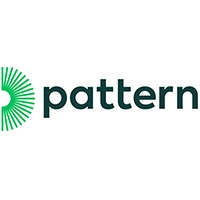Last Updated on November 20, 2024 by Laura Turner
As a physician, your greatest asset is not just your medical expertise but your ability to practice medicine. Your profession, built on years of education and training, offers you both personal satisfaction and financial security. However, what happens if an unexpected injury or illness prevents you from performing the duties of your medical specialty? This is where disability insurance (DI) becomes an essential part of a physician’s financial protection plan. In this article, we’ll dive deep into why disability insurance is crucial for physicians, how it can safeguard your career and income, and the long-term benefits of securing a policy as early as possible.
1. Protecting Your Most Valuable Asset: Your Ability to Earn
As a physician, your capacity to work is your most valuable financial asset. Unlike physical assets like your home or investments, your future earning potential is intangible yet incredibly important. On average, a physician will earn millions of dollars over the course of their career, with this income providing not only for day-to-day living expenses but also supporting retirement plans, student loans, children’s education, mortgage payments, and overall financial goals.
Disability insurance provides a safety net, ensuring that if you are unable to work due to illness or injury, a portion of your income will continue to come in. Without this coverage, a disabling condition could quickly jeopardize everything you’ve worked so hard to achieve. This is particularly important for physicians whose daily activities involve precision, fine motor skills, or strenuous physical effort.
Key Takeaway: Your income is your most significant financial resource, and disability insurance protects that income from being derailed by an unexpected injury or illness.
2. High Risks for Physicians
While many people tend to think of disability as something that happens in extreme or rare cases, the reality is much different. Statistically, the Social Security Administration estimates that 1 in 4 people will become disabled before they reach retirement age. Physicians, despite leading healthy lifestyles and having access to high-quality medical care, are not immune to these risks. In fact, due to the nature of their jobs, physicians are susceptible to unique risks that can lead to disability:
- Physical Stress: Many specialties, such as surgery or emergency medicine, require long hours, standing for extended periods, or repetitive motions. Over time, this can lead to musculoskeletal issues, including back pain, carpal tunnel syndrome, or even more severe conditions requiring surgical intervention.
- Mental Health Risks: Physicians face high levels of stress, long working hours, and immense responsibility, all of which can contribute to burnout, anxiety, and depression. In some cases, these mental health challenges can lead to conditions requiring time off work, impacting a physician’s ability to practice effectively.
- Chronic Illnesses: Like anyone else, physicians are not immune to chronic illnesses such as cancer, heart disease, or neurological disorders. Any of these conditions could cause temporary or permanent disabilities that prevent you from working.
While medical knowledge may allow you to better understand and prevent some of these risks, no one is entirely immune to unforeseen events. Disability insurance is your best safeguard.
Key Takeaway: The physical and mental demands of the medical profession can put physicians at a higher risk for disability. DI provides protection against both short-term and long-term work disruptions.
3. The Financial Burden of Disability
When physicians experience a disability, it isn’t just their income that takes a hit—their financial obligations often remain unchanged or even increase. Without a steady income, making mortgage payments, managing student loans, covering living expenses, or saving for retirement can become impossible.
Unlike other professions where a person may easily switch to a desk job after a physical injury, many physicians depend on specific physical abilities, such as fine motor skills, to perform their duties. This makes returning to work after certain disabilities either incredibly challenging or impossible, depending on the severity of the condition.
Disability insurance ensures that you can maintain your financial responsibilities and lifestyle, even if you’re unable to work for an extended period. It bridges the gap between what your financial needs are and what you’re able to earn, offering peace of mind.
Key Takeaway: Disability can lead to financial hardships without proper protection, making DI an essential component of your financial plan.
4. True Own-Occupation Coverage: A Physician’s Lifeline
When considering disability insurance, it’s essential to understand the importance of true own-occupation coverage. Not all disability insurance policies are created equal, and physicians have unique needs that should be addressed by a specific type of policy.
True own-occupation coverage means that if you’re unable to perform the duties of your specific medical specialty due to illness or injury, you’re still eligible to receive benefits—even if you choose to work in a different field or capacity. For example, if you’re an orthopedic surgeon who develops a hand injury that prevents you from performing surgery, a true own-occupation policy would pay benefits even if you take on another role within the medical field, such as teaching or consulting.
Without true own-occupation coverage, you may only receive benefits if you’re unable to work in any capacity, which significantly reduces the likelihood of a payout and leaves you more vulnerable.
Key Takeaway: Physicians should seek out true own-occupation disability insurance to ensure they’re protected if they can’t perform the duties of their specific specialty.
Understanding Insurance
5. Taking Advantage of Lower Rates Early in Your Career
One of the biggest mistakes physicians make is waiting too long to purchase disability insurance. Many assume that because they’re young and healthy, they can delay coverage until later in their careers. However, buying disability insurance early—while you’re still in training or just beginning your career—has significant advantages:
- Lower Premiums: Disability insurance premiums are based on factors like age and health. The younger and healthier you are, the lower your premiums will be. Waiting until later, especially if a health condition arises, can result in much higher costs or limited coverage options.
- Locked-in Rates: Once you secure a policy, your premiums typically remain level throughout the life of the policy. This means that by purchasing coverage early, you can lock in lower rates for the entirety of your career.
- Discounts for Residents and Fellows: Many disability insurance carriers offer special discounts for physicians still in training, making it even more affordable to secure a policy early on. Securing coverage now not only ensures that you’re protected but also saves you thousands of dollars over the course of your career.
Key Takeaway: Buying disability insurance early in your career locks in lower premiums and takes advantage of resident and fellow discounts.
6. Group Disability Insurance vs. Individual Policies
Many physicians rely on employer-provided group disability insurance, which may seem like a sufficient level of coverage. However, it’s essential to understand the limitations of group policies and why an individual policy is often a better choice for physicians.
- Coverage Limitations: Group policies often have lower benefit amounts, which may not adequately cover a physician’s income.
- Taxable Benefits: If your employer pays the premium, any benefits you receive may be taxable, further reducing the amount you receive.
- Loss of Coverage: Group coverage is tied to your employment, meaning if you change jobs or leave your practice, you lose your coverage. Individual policies are portable and stay with you regardless of your job status.
- Own-Occupation Coverage: Many group policies do not offer true own-occupation coverage, which is critical for physicians.
While group disability insurance can serve as a good starting point, physicians should consider supplementing it with an individual policy to ensure comprehensive coverage.
Key Takeaway: Individual disability insurance policies offer more comprehensive and reliable coverage than group policies, especially for physicians.
7. Mental Health Exclusions: A Gap in Coverage
One of the often-overlooked areas in disability insurance is how mental health conditions are treated in terms of coverage. Many policies either exclude mental health conditions altogether or place limitations on the duration of benefits for disabilities caused by mental health disorders. For physicians, who face unique stresses, this can be a significant gap in coverage.
When shopping for disability insurance, it’s crucial to carefully review how mental health conditions are covered and to seek out policies that offer the most comprehensive coverage. Mental health conditions like burnout, anxiety, and depression are becoming increasingly common among physicians, and having the right coverage in place is essential.
Key Takeaway: Physicians should ensure their disability insurance policy offers sufficient coverage for mental health conditions, as this can be a major area of risk.
8. The Long-Term Benefits of Disability Insurance
Disability insurance isn’t just a short-term fix; it’s a long-term solution to protect your financial future. A disabling event could last for months, years, or even become permanent. Without proper coverage, the financial consequences of a long-term disability can be devastating, potentially affecting your savings, retirement plans, and quality of life.
By investing in a disability insurance policy, you’re ensuring that you’ll have financial support throughout your working years, regardless of what the future holds.
Key Takeaway: Disability insurance provides long-term financial protection, ensuring you’re covered for the duration of your career.
This article contains affiliate links, which means we may earn a commission if you click through and make a purchase at no additional cost to you. Article image created using Adobe Firefly generative AI.


